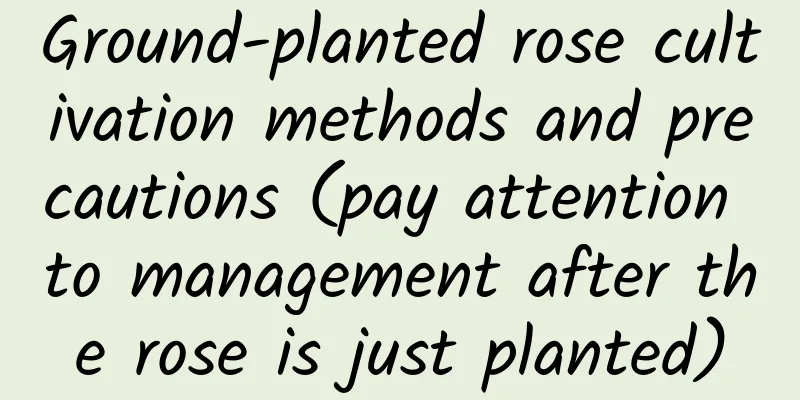The causes and treatments of yellow plum leaves

1. Fertilizing too frequently1. Reason: If fertilization is applied too frequently or at an inappropriate time, the leaves will become thick and yellow. For example, less nutrients are needed in winter. If too much fertilizer is applied at this time, the soil will become compacted and worse, affecting growth. 2. Solution: At this time, use water to flush away the remaining fertilizer in the soil. The amount and frequency of daily fertilization must be strictly controlled. Fertilizer must not be applied too frequently or in too large a quantity. During the spring and autumn seasons when growth and development are vigorous, fertilizer can be applied once every 9-14 days. 2. Excessive watering1. Reason: Plum blossoms are very drought-resistant plants. Normally, if you water them too much or too frequently, it will cause water accumulation. Long-term water accumulation in the soil will soak the roots of the plum blossoms and cause them to be damaged, causing the leaves to turn yellow. 2. Solution: At this time, move it to a cool and ventilated place, dry the soil, and reduce watering for a period of time until it recovers. Watering should be timely and appropriate. Make a good watering plan. The amount and frequency of watering should be changed according to the characteristics of each season, and drainage work should be carried out during the rainy season. 3. Unsuitable light exposure1. Reason: The growth and development of plum blossoms require sufficient soft sunlight. If the place where it is grown does not see sunlight for a long time or the light is too strong, it may cause it to grow poorly and have yellow leaves. 2. Treatment method: It needs to be transplanted to a location with moderate light duration and intensity for maintenance. Even if you trim the withered branches and leaves, they will return to normal after a period of time. |
<<: Causes and treatments of yellow leaves of Gypsophila paniculata
>>: Causes and treatments for yellow leaves of Verbena
Recommend
What to do if the cactus has rotten roots and stems
Causes of cactus root and stem rot There are two ...
What should I do if there are black spots on okra leaves? What should I do if there are black spots on okra leaves?
1. Symptoms Black spots on okra leaves are a comm...
How to grow spring orchids in autumn
1. Breeding conditions 1. Soil: It likes loose, b...
Date tree planting time and method
Date tree planting time Date trees are usually pl...
Lily of the valley bulb planting methods and precautions, how to choose bulbs
1. Planting method 1. Planting time: Choose the r...
Libra's Guardian Plant - Hydroponic Brazilian Wood
Hydroponic Brazilian Wood Brazil wood is a highly...
Agave cultivation methods and precautions
Agave , an evergreen plant, becomes a bright spot...
Peony planting methods and precautions
When to plant peonies When planting peonies, peop...
Coral Pagoda Breeding Methods and Precautions
1. Soil The soil for cultivating coral reef is ge...
How to propagate bayberry
Bayberry seed propagation Select ripe bayberry fr...
Water and fertilizer management in Qianzhi Tower
Watering Tips Most succulents follow the principl...
Cultivation methods and precautions of rabbit ear orchid
1. Soil When growing rabbit ear orchids, you must...
Where is the best place to produce winter jujube in Shanxi? Where is the most famous and delicious jujube in Shanxi?
Where is the most famous jujube in Shanxi? The wi...
The language and legend of Fritillaria
The flower language of Fritillaria The flower lan...
How to grow golden chrysanthemum
Sunlight needs Golden chrysanthemum likes plenty ...









